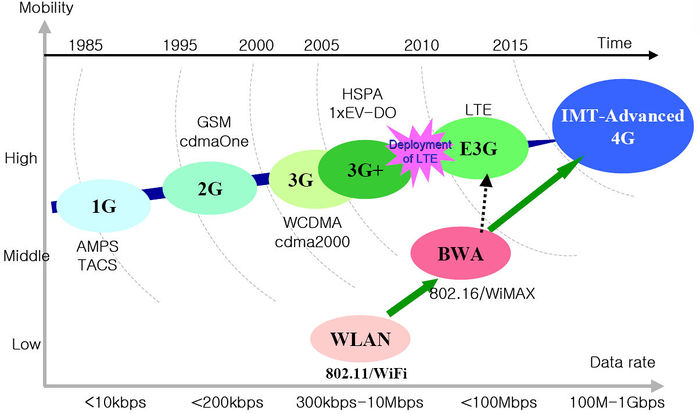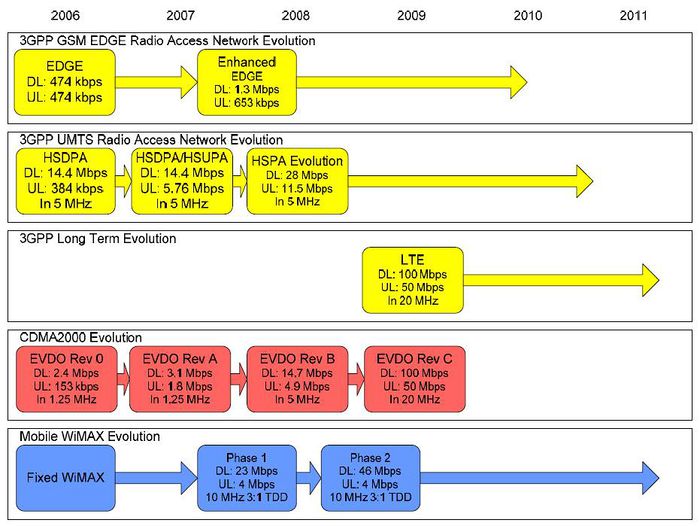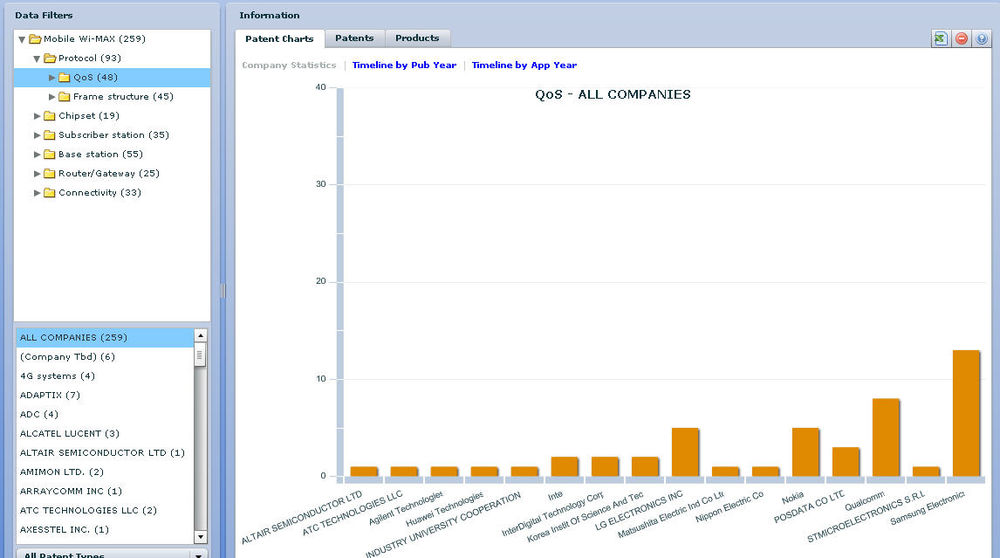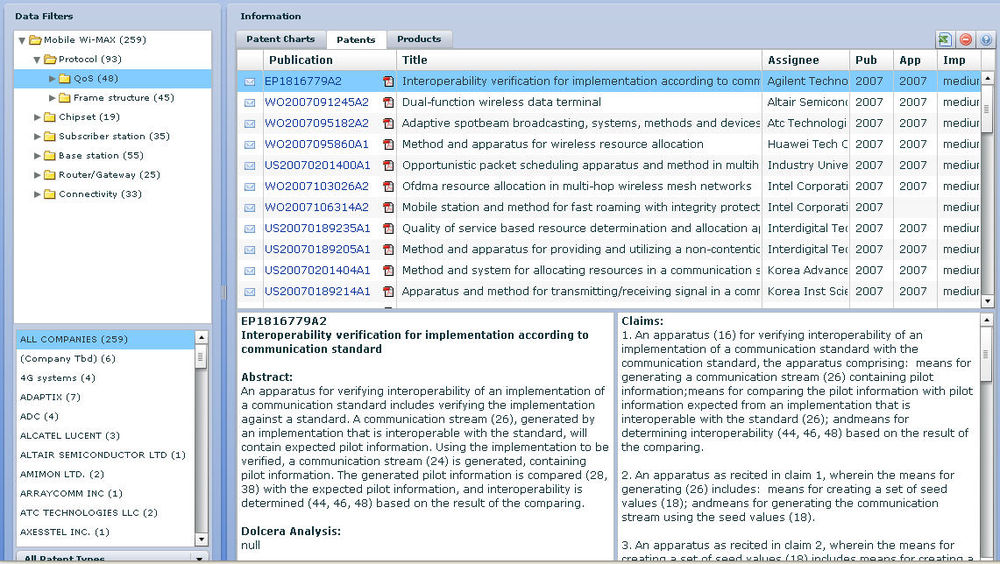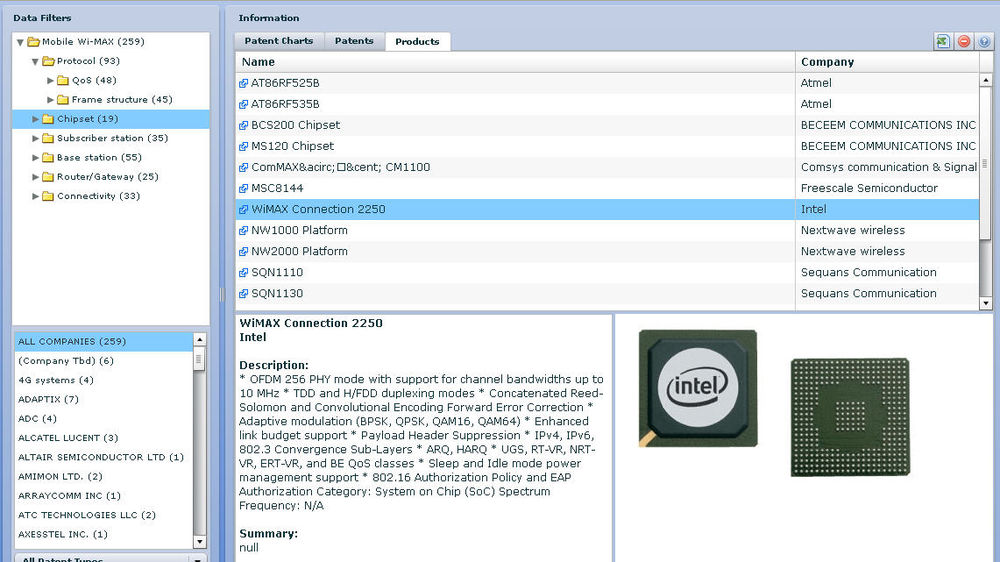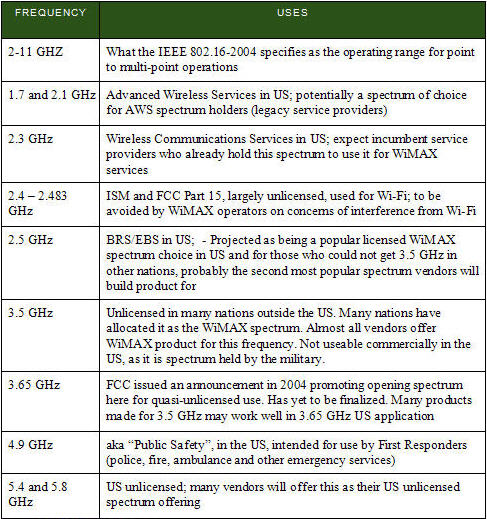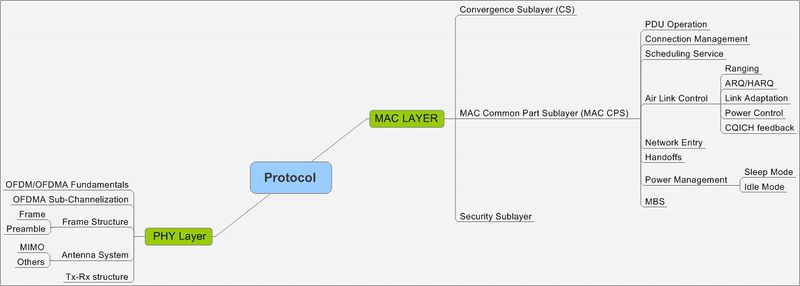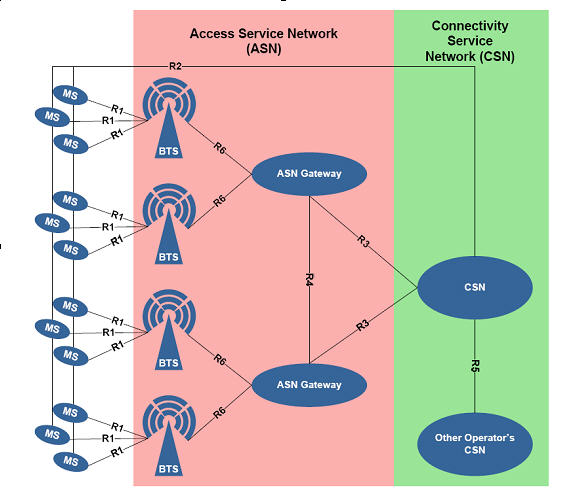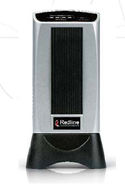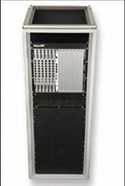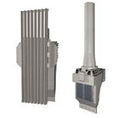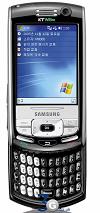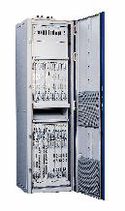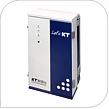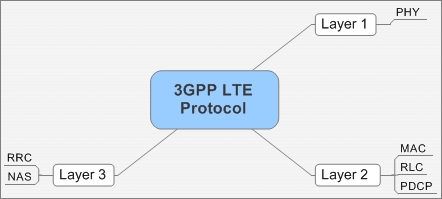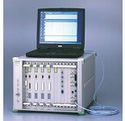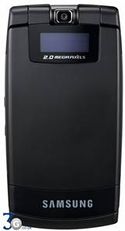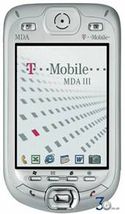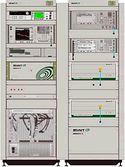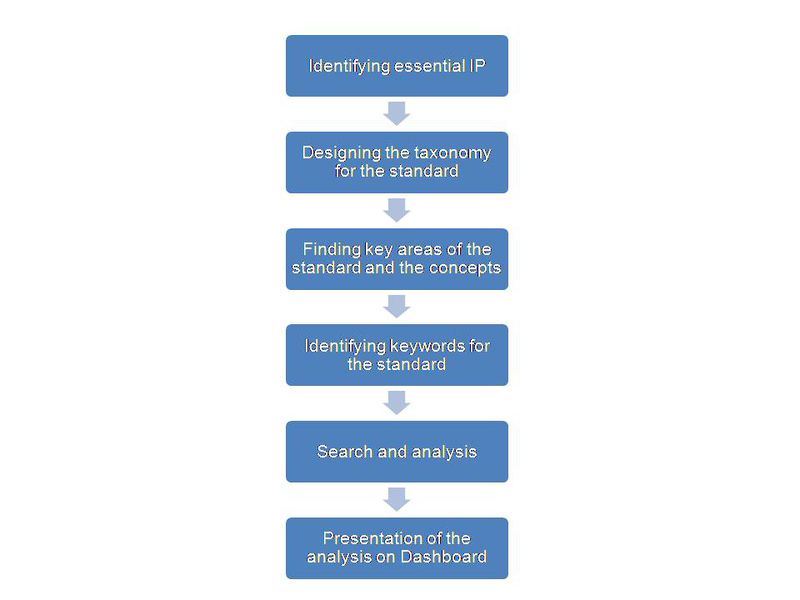Difference between revisions of "4G wireless technology developments"
(→Technology mapping parameters) |
(→Process Chart) |
||
| (256 intermediate revisions by 6 users not shown) | |||
| Line 1: | Line 1: | ||
{{TOCrightEx}} | {{TOCrightEx}} | ||
| − | == | + | == Overview == |
| − | + | ===Definition of 4G=== | |
| − | + | ||
| − | + | ||
| − | + | ||
| − | + | ||
| − | + | ||
| − | + | ||
| − | + | ||
| − | ==Definition of 4G== | + | |
| − | + | ||
The 4G will be a fully IP-based integrated system of systems and network of networks achieved after the convergence of wired and wireless networks as well as computer, consumer electronics, communication technology, and several other convergences that will be capable of providing 100 Mbit/s and 1 Gbit/s, respectively, in outdoor and indoor environments with end-to-end QoS and high security, offering any kind of services anytime, anywhere, at affordable cost and one billing. | The 4G will be a fully IP-based integrated system of systems and network of networks achieved after the convergence of wired and wireless networks as well as computer, consumer electronics, communication technology, and several other convergences that will be capable of providing 100 Mbit/s and 1 Gbit/s, respectively, in outdoor and indoor environments with end-to-end QoS and high security, offering any kind of services anytime, anywhere, at affordable cost and one billing. | ||
According to the 4G working groups, the infrastructure and the terminals will have almost all the standards from 2G to 3G implemented. The infrastructure will however only be packet based, all-IP. The system will also serve as an open platform where the new innovations can go with it. | According to the 4G working groups, the infrastructure and the terminals will have almost all the standards from 2G to 3G implemented. The infrastructure will however only be packet based, all-IP. The system will also serve as an open platform where the new innovations can go with it. | ||
| − | + | === 4G standards === | |
| − | + | * WiMAX | |
| − | + | ||
| − | + | ||
| − | * | + | |
* WiBro | * WiBro | ||
* 3GPP Long Term Evolution | * 3GPP Long Term Evolution | ||
| Line 25: | Line 13: | ||
* 3GPP2 Ultra Mobile Broadband | * 3GPP2 Ultra Mobile Broadband | ||
| − | + | ===Services where 4G is used=== | |
| − | + | ||
*Wireless broadband access | *Wireless broadband access | ||
*Multimedia Messaging Service | *Multimedia Messaging Service | ||
| Line 35: | Line 22: | ||
*Minimal service like voice and data | *Minimal service like voice and data | ||
| − | + | === 4G objectives=== | |
| − | + | ||
* A spectrally efficient system (in bits/s/Hz and bit/s/Hz/site) | * A spectrally efficient system (in bits/s/Hz and bit/s/Hz/site) | ||
* High network capacity | * High network capacity | ||
| Line 47: | Line 33: | ||
* An all IP, packet switched network | * An all IP, packet switched network | ||
| − | + | ==Technology overview== | |
| − | + | ||
| − | + | ||
| − | + | ||
| − | + | ||
| − | + | ||
Mindmap below shows the overview of emerging technologies in 4G | Mindmap below shows the overview of emerging technologies in 4G | ||
| − | [[Image: | + | {|border="2" cellspacing="2" cellpadding="4" width="75%" align = "center" |
| + | |align = "center" bgcolor = "#00CCFF" rowspan = "2"|'''Parameter''' | ||
| + | |align = "center" bgcolor = "#00CCFF" colspan = "5"|'''4G''' | ||
| + | |- | ||
| + | |align = "center" bgcolor = "#00CCFF"|'''WiMAX''' | ||
| + | |align = "center" bgcolor = "#00CCFF"|'''WiBro''' | ||
| + | |align = "center" bgcolor = "#00CCFF"|'''3GPP LTE''' | ||
| + | |align = "center" bgcolor = "#00CCFF"|'''HSOPA''' | ||
| + | |align = "center" bgcolor = "#00CCFF"|'''3GPP2 UMB''' | ||
| + | |- | ||
| + | |align = "center" bgcolor = "#00CCFF"|'''Logo''' | ||
| + | |align = "center"| | ||
| + | [[Image:wimax_01.jpeg|70px]] | ||
| + | |||
| + | |align = "center"| | ||
| + | [[Image:wibro_02.jpeg|70px]] | ||
| + | |||
| + | |align = "center"| | ||
| + | [[Image:lte_03.jpeg|100px]] | ||
| + | |||
| + | |align = "center"| | ||
| + | [[Image:hsopa_04.jpeg|100px]] | ||
| + | |||
| + | |align = "center"| | ||
| + | [[Image:umb_05.jpeg|70px]] | ||
| + | |||
| + | |- | ||
| + | |align = "center" bgcolor = "#00CCFF"|'''Access scheme''' | ||
| + | |align = "center"|OFDMA | ||
| + | |align = "center"|OFDMA | ||
| + | |align = "center"|SC-FDMA Uplink<br>OFDMA Downlink | ||
| + | |align = "center"|SC-FDMA Uplink<br>OFDMA Downlink | ||
| + | |align = "center"|OFDMA | ||
| + | |- | ||
| + | |align = "center" bgcolor = "#00CCFF"|'''Duplex system''' | ||
| + | |align = "center"|TDD/FDD | ||
| + | |align = "center"|TDD | ||
| + | |align = "center"|TDD/FDD | ||
| + | |align = "center"|FDD | ||
| + | |align = "center"|FDD | ||
| + | |- | ||
| + | |align = "center" bgcolor = "#00CCFF"|'''Channel Bandwidth''' | ||
| + | |align = "center"|3.5, 5, 7, 8.75, 10, 15, 20MHz | ||
| + | |align = "center"|8.75MHz | ||
| + | |align = "center"|1.25, 1.6, 2.5, 5, 10, 15 and 20 MHz | ||
| + | |align = "center"|1.25 MHz to 20 MHz | ||
| + | |align = "center"|1.25 - 20 MHz | ||
| + | |- | ||
| + | |align = "center" bgcolor = "#00CCFF"|'''FFT size''' | ||
| + | |align = "center"|128, 256, 512, 1024, 2048 | ||
| + | |align = "center"|1024 | ||
| + | |align = "center"|128, 256, 512, 1024, 1536, 2048 | ||
| + | |align = "center"|128, 256, 512, 1024, 1536, 2049 | ||
| + | |align = "center"|N/A | ||
| + | |- | ||
| + | |align = "center" bgcolor = "#00CCFF"|'''Data rate''' | ||
| + | |align = "center"|70 Mbps | ||
| + | |align = "center"|30 - 50 Mbps | ||
| + | |align = "center"|100 Mbps Downlink<br>50 Mbps Uplink | ||
| + | |align = "center"|14.4 Mbps | ||
| + | |align = "center"|275 Mbps Downlink <br>75 Mbps Uplink | ||
| + | |- | ||
| + | |align = "center" bgcolor = "#00CCFF"|'''Antenna System''' | ||
| + | |align = "center"|MIMO-AAS smart antenna subsystems.<br>(6 - antenna array) | ||
| + | |align = "center"|MIMO-AAS smart antenna subsystems.<br>(6 - antenna array) | ||
| + | |align = "center"|MIMO-AAS smart antenna subsystems.<br>(4 - antenna array) | ||
| + | |align = "center"|MIMO-AAS smart antenna subsystems. | ||
| + | |align = "center"|MIMO-AAS smart antenna subsystems. | ||
| + | |- | ||
| + | |align = "center" bgcolor = "#00CCFF"|'''FEC scheme''' | ||
| + | |align = "center"|Convolution Code<br>Convolution Turbo Code | ||
| + | |align = "center"|Convolution Code<br>Convolution Turbo Code | ||
| + | |align = "center"|Convolution Code<br>Turbo Code | ||
| + | |align = "center"|N/A | ||
| + | |align = "center"|N/A | ||
| + | |- | ||
| + | |align = "center" bgcolor = "#00CCFF"|'''Modulation''' | ||
| + | |align = "center"|BPSK, QPSK, 16QAM, 64QAM | ||
| + | |align = "center"|QPSK, 16QAM, 64QAM | ||
| + | |align = "center"|QPSK, 8PSK 16 QAM | ||
| + | |align = "center"|16 QAM | ||
| + | |align = "center"|BPSK, 8PSK, QPSK, 16QAM, 64QAM | ||
| + | |- | ||
| + | |align = "center" bgcolor = "#00CCFF"|'''Frequency band''' | ||
| + | |align = "center"|2.3GHz <nowiki>~</nowiki> 2.4GHz | ||
| + | |align = "center"|2.3GHz <nowiki>~</nowiki> 2.4GHz | ||
| + | |align = "center"|2010MHz <nowiki>~</nowiki> 2025MHz | ||
| + | |align = "center"|N/A | ||
| + | |align = "center"|450 MHz to 3.6GHz | ||
| + | |- | ||
| + | |align = "center" bgcolor = "#00CCFF"|'''Cell coverage''' | ||
| + | |align = "center"|10 KM | ||
| + | |align = "center"|1 KM | ||
| + | |align = "center"|5 - 100 KM | ||
| + | |align = "center"|N/A | ||
| + | |align = "center"|N/A | ||
| + | |- | ||
| + | |} | ||
| + | |||
===Mobile technology roadmap=== | ===Mobile technology roadmap=== | ||
| − | [[Image:roadmap.jpg|700px|center|thumb|Roadmap]] | + | [[Image:roadmap.jpg|700px|center|thumb|<font size = "3">'''Roadmap'''</font>]] |
| − | [[Image:roadmap_mobile wimax.jpg|700px|center|thumb| [http://images.google.co.in/imgres?imgurl=http://www.ixbt.com/mobile/itogi2006/wimax/Evolution_big.jpg&imgrefurl=http://forums.whirlpool.net.au/forum-replies-archive.cfm/765653.html&h=699&w=931&sz=91&hl=en&start=5&um=1&tbnid=vTRyRja1XS2n6M:&tbnh=110&tbnw=147&prev=/images%3Fq%3Dwimax%2Broadmap%26svnum%3D10%26um%3D1%26hl%3Den%26client%3Dfirefox-a%26rls%3Dorg.mozilla:en-US:official%26sa%3DG | + | [[Image:roadmap_mobile wimax.jpg|700px|center|thumb| [http://images.google.co.in/imgres?imgurl=http://www.ixbt.com/mobile/itogi2006/wimax/Evolution_big.jpg&imgrefurl=http://forums.whirlpool.net.au/forum-replies-archive.cfm/765653.html&h=699&w=931&sz=91&hl=en&start=5&um=1&tbnid=vTRyRja1XS2n6M:&tbnh=110&tbnw=147&prev=/images%3Fq%3Dwimax%2Broadmap%26svnum%3D10%26um%3D1%26hl%3Den%26client%3Dfirefox-a%26rls%3Dorg.mozilla:en-US:official%26sa%3DG <font size = "3">'''Roadmap'''</font>]]] |
| − | == | + | === Dashboard Preview === |
| − | WiMAX is defined as "Worldwide Interoperability for Microwave Access" by the WiMAX Forum, formed in June 2001 to promote conformance and interoperability of the IEEE 802.16 standard, officially known as WirelessMAN. WiMAX aims to provide wireless data over long distances, in a variety of different ways, from point to point links to full mobile cellular type access. In practical terms this enables a user, for example, to browse the Internet on a laptop computer without physically connecting the laptop to a wall jack. | + | |
| + | [[Image:patent chart.jpeg|1000 px|center|thumb|Preview of company statistics per protocol]] | ||
| + | |||
| + | [[Image:patents.jpeg|1000 px|center|thumb|Preview of patents per protocol]] | ||
| + | |||
| + | [[Image:product.jpeg|1000 px|center|thumb|Preview of the products for particular company]] | ||
| + | |||
| + | ==<span style="color:#C41E3A">Like this report?</span>== | ||
| + | <p align="center"> '''This is only a sample report with brief analysis''' <br> | ||
| + | '''Dolcera can provide a comprehensive report customized to your needs'''</p> | ||
| + | {|border="2" cellspacing="0" cellpadding="4" align="center" " | ||
| + | |style="background:lightgrey" align = "center" colspan = "3"|'''[mailto:info@dolcera.com <span style="color:#0047AB">Buy the customized report from Dolcera</span>]''' | ||
| + | |- | ||
| + | | align = "center"| [http://www.dolcera.com/website_prod/services/ip-patent-analytics-services Patent Analytics Services] | ||
| + | |align = "center"| [http://www.dolcera.com/website_prod/services/business-research-services Market Research Services] | ||
| + | |align = "center"| [http://www.dolcera.com/website_prod/tools/patent-dashboard Purchase Patent Dashboard] | ||
| + | |- | ||
| + | |align = "center"| [http://www.dolcera.com/website_prod/services/ip-patent-analytics-services/patent-search/patent-landscapes Patent Landscape Services] | ||
| + | |align = "center"| [http://www.dolcera.com/website_prod/research-processes Dolcera Processes] | ||
| + | |align = "center"| [http://www.dolcera.com/website_prod/industries Industry Focus] | ||
| + | |- | ||
| + | |align = "center"| [http://www.dolcera.com/website_prod/services/ip-patent-analytics-services/patent-search/patent-landscapes Patent Search Services] | ||
| + | |align = "center"| [http://www.dolcera.com/website_prod/services/ip-patent-analytics-services/alerts-and-updates Patent Alerting Services] | ||
| + | |align = "center"| [http://www.dolcera.com/website_prod/tools Dolcera Tools] | ||
| + | |- | ||
| + | |} | ||
| + | <br> | ||
| + | ==WiMAX== | ||
| + | |||
| + | ===[http://client.dolcera.com/dashboard/dashboard.html?workfile_id=54 '''''WiMAX Dashboard''''']=== | ||
| + | |||
| + | * WiMAX is defined as "Worldwide Interoperability for Microwave Access" by the WiMAX Forum, formed in June 2001 to promote conformance and interoperability of the IEEE 802.16 standard, officially known as WirelessMAN. WiMAX aims to provide wireless data over long distances, in a variety of different ways, from point to point links to full mobile cellular type access. In practical terms this enables a user, for example, to browse the Internet on a laptop computer without physically connecting the laptop to a wall jack. | ||
| + | |||
| + | '''[[Background Information]]''' | ||
| + | |||
| + | '''Spectrum coverage by geography''' | ||
| + | Image below shows the spectrum for WiMAX users World wide. | ||
| + | [[Image:Spectrum1.jpg|center|800px|thumb|<font size = "3">'''Spectrum for WiMAX users World wide'''</font>]] | ||
| + | |||
| + | '''Market research data:''' | ||
| + | * Worldwide WiMAX equipment revenues are forecast to reach $3.26 billion in 2009 | ||
| + | * Worldwide outdoor wireless mesh access node sales are forecast to reach $1.17 billion in 2009 | ||
| + | * Samsung leads overall WiMAX equipment revenue share in 3Q06, ahead of Alvarion, Airspan, and Aperto Networks | ||
| + | * Strix Systems leads overall outdoor mesh revenue market share in 3Q06, just ahead of Tropos Networks and BelAir Networks | ||
| + | * 35% of WiMAX equipment sales come from Asia Pacific, 30% from EMEA, 20% from North America, and 14% from CALA | ||
| + | * 49% of wireless mesh access node sales come from North America, 25% from EMEA, 18% from Asia Pacific, and 8% from CALA | ||
| + | * 802.16 standards The first 802.16 standard was approved in December 2001. It delivered a standard for point to multipoint Broadband Wireless transmission in the 10-66 GHz band, with only a Line of Sight (LOS) capability. It uses a single carrier (SC) physical (PHY) standard. [http://www.bbwexchange.com/pubs/2006/12/05/page1421-371393.asp Source] | ||
| − | |||
| − | |||
| − | |||
| − | |||
| − | |||
===Standards=== | ===Standards=== | ||
# [http://standards.ieee.org/getieee802/download/802.16.2-2004.pdf IEEE 802.16-2004 (802.16d)] addresses only fixed systems | # [http://standards.ieee.org/getieee802/download/802.16.2-2004.pdf IEEE 802.16-2004 (802.16d)] addresses only fixed systems | ||
| − | # [http://standards.ieee.org/getieee802/download/802.16e-2005.pdf IEEE Std 802.16e-2005], also called mobile | + | # [http://standards.ieee.org/getieee802/download/802.16e-2005.pdf IEEE Std 802.16e-2005], also called mobile WiMAX |
#* 802.16e also bring Multiple Antenna Support through Multiple-input multiple-output communications. This brings potential benefits in terms of coverage, self installation, power consumption, frequency re-use and bandwidth efficiency. 802.16e also adds a capability for full mobility support. | #* 802.16e also bring Multiple Antenna Support through Multiple-input multiple-output communications. This brings potential benefits in terms of coverage, self installation, power consumption, frequency re-use and bandwidth efficiency. 802.16e also adds a capability for full mobility support. | ||
# WiMAX II, 802.16m will be proposed for IMT-Advanced 4G (future development) | # WiMAX II, 802.16m will be proposed for IMT-Advanced 4G (future development) | ||
#* 3GPP LTE and WiMAX-m are concentrating much effort on MIMO-AAS, mobile multi-hop relay networking and related developments needed to deliver 10X and higher Co-Channel reuse multiples. | #* 3GPP LTE and WiMAX-m are concentrating much effort on MIMO-AAS, mobile multi-hop relay networking and related developments needed to deliver 10X and higher Co-Channel reuse multiples. | ||
| − | IEEE 802.16e-2005 improves upon IEEE 802.16-2004 by: | + | '''IEEE 802.16e-2005 improves upon IEEE 802.16-2004 by:''' |
* Scaling of the Fast Fourier Transform (FFT) to the channel bandwidth in order to keep the carrier spacing constant across different channel bandwidths (1.25-20 MHz). Constant carrier spacing results in a higher spectrum efficiency in wide channels, and a cost reduction in narrow channels. Also known as Scalable OFDMA (SOFDMA). | * Scaling of the Fast Fourier Transform (FFT) to the channel bandwidth in order to keep the carrier spacing constant across different channel bandwidths (1.25-20 MHz). Constant carrier spacing results in a higher spectrum efficiency in wide channels, and a cost reduction in narrow channels. Also known as Scalable OFDMA (SOFDMA). | ||
| Line 87: | Line 207: | ||
* Enhanced Fast Fourier Transform algorithm can tolerate larger delay spreads, increasing resistance to multipath interference | * Enhanced Fast Fourier Transform algorithm can tolerate larger delay spreads, increasing resistance to multipath interference | ||
* Adding an extra QoS class (enhanced real-time Polling Service) more appropriate for VoIP applications. | * Adding an extra QoS class (enhanced real-time Polling Service) more appropriate for VoIP applications. | ||
| − | * Adding support for mobility (soft and hard handover between base stations). This is seen as one of the most important aspects of 802.16e-2005, and is the very basis of 'Mobile WiMAX'. | + | * Adding support for mobility (soft and hard handover between base stations). This is seen as one of the most important aspects of 802.16e-2005, and is the very basis of 'Mobile WiMAX'. [http://en.wikipedia.org/wiki/WiMAX Source] |
| − | [http://en.wikipedia.org/wiki/WiMAX Source | + | |
| − | + | ||
| − | + | ||
| − | [[Image: | + | '''Technology mapping parameters''' |
| + | [[Image:protocol.jpg|center|800 px|thumbnail| '''IEEE 802.16e Protocol Stack''']] | ||
| − | |||
| − | |||
| − | |||
| − | |||
| − | |||
| − | |||
| − | |||
| − | + | '''Content delivery''' | |
| − | + | ||
| − | + | '''QoS service for WiMAX Content Delivery as per standard''' | |
| + | |||
| + | {|border="2" cellspacing="4" cellpadding="4" width="75%" align="center" | ||
| + | |align = "center" bgcolor = "#00CCFF" rowspan = "3"|'''Service''' | ||
| + | |align = "center" bgcolor = "#00CCFF"|'''UGS''' | ||
| + | |align = "center" bgcolor = "#00CCFF"|'''RT-VR''' | ||
| + | |align = "center" bgcolor = "#00CCFF"|'''NRT-VR''' | ||
| + | |align = "center" bgcolor = "#00CCFF"|'''BE''' | ||
| + | |align = "center" bgcolor = "#00CCFF"|'''ERT-VR''' | ||
| + | |- | ||
| + | |align = "center" bgcolor = "#00CCFF"|'''Unsolicited Grant Service''' | ||
| + | |align = "center" bgcolor = "#00CCFF"|'''Real-Time Variable Rate Service''' | ||
| + | |align = "center" bgcolor = "#00CCFF"|'''Non-Real-Time Variable Rate service''' | ||
| + | |align = "center" bgcolor = "#00CCFF"|'''Best Efforts Service''' | ||
| + | |align = "center" bgcolor = "#00CCFF"|'''Extended Real-Time Variable Rate Service.''' | ||
| + | |- | ||
| + | |valign = "top"|Real time service (e.g.VoIP) generating fixed data rate. Data can be provided as either fixed or variable length PDU. | ||
| + | |valign = "top"|Real-time service (e.g.MPEG) applications with variable bit rates. Require guaranteed data rate and delay. | ||
| + | |valign = "top"|Non Real time service (FTP) for guaranted data rate.This service is insensetive to delays.It is desirable in certain cases to limit the data rate of these services to some maximum rate. | ||
| + | |valign = "top"|The intent of the BE service grant scheduling type is to provide efficient service for best effort traffic in the | ||
| + | uplink. | ||
| + | |valign = "top"|This service is to support real-time applications with variable data-rates, which require guaranteed data and delay, for example VoIP with silence suppression. | ||
| + | |- | ||
| + | |align = "center" bgcolor = "#00CCFF"|'''Parameters''' | ||
| + | |valign = "top"|1) Minimum reserved traffic rate <br>2) Maximum Latency <br>3)Request/Transmission Policy<br>4) Unsolicited Grant Interval | ||
| + | |valign = "top"|1) Maximum Latency <br>2) Minimum Reserved Traffic Rate <br>3) Maximum Sustained Traffic Rate<br>4) Traffic priority <br>5)Request/Transmission policy <br>6) Unsolicited Polling Interval | ||
| + | |valign = "top"|1) Minimum Reserved Traffic Rate <br>2) Maximum Sustained Traffic Rate <br>3) Traffic priority <br>4)Request/Transmission policy | ||
| + | |valign = "top"|1) Maximum Sustained Traffic Rate<br>2) Traffic priority<br>3)Request/Transmission policy | ||
| + | |valign = "top"|1) Maximum Latency <br>Tolerated Jitter<br>2) Minimum Reserved Traffic Rate <br>3) Maximum Sustained Traffic Rate <br>4) Traffic Priority <br>5)Request/Transmission Policy<br>6) Unsolicited Grant Interval | ||
| + | |- | ||
| + | |} | ||
| + | |||
| + | |||
| + | '''WiMAX Network Reference Model''' | ||
| + | |||
| + | '''Access Service network(ASN)''': The ASN coordinates traffic across multiple Base Transceiver Stations (BTS) and supports security, handoffs and Quality of Service (QoS). | ||
| + | * The ASN interfaces the BTS and the all-IP core network—the CSN. Typically the ASN includes numerous BTSs with one or more ASN gateways. | ||
| + | * The ASN manages radio resources, MS access, mobility, security and QoS. It acts as a relay for the CSN for IP address allocation and AAA functions. | ||
| + | |||
| + | |||
| + | [[Image:ASN.jpg|center|1500 px|thumbnail|<font size = "3">'''WiMAX Network Reference Model '''</font>]] | ||
| + | |||
| + | {|border="2" cellspacing="0" cellpadding="4" width="78% " align="center" | ||
| + | |align = "center" bgcolor = "#00CCFF"|'''Interface''' | ||
| + | |align = "center" bgcolor = "#00CCFF"|'''Description''' | ||
| + | |align = "center" bgcolor = "#00CCFF"|'''Functionality''' | ||
| + | |- | ||
| + | |align = "justify" bgcolor = "#00CCFF"|'''R1''' | ||
| + | |align = "justify"|Interface between the MS and the ASN | ||
| + | |align = "justify"|Air interface | ||
| + | |- | ||
| + | |align = "justify" bgcolor = "#00CCFF"|'''R2''' | ||
| + | |align = "justify"|Interface between the MS and the CSN | ||
| + | |align = "justify"|AAA (Authentication, Authorization, & Accounting ), IP host configuration, mobility management | ||
| + | |- | ||
| + | |align = "justify" bgcolor = "#00CCFF"|'''R3''' | ||
| + | |align = "justify"|Interface between the ASN and the CSN | ||
| + | |align = "justify"|AAA, policy enforcement, mobility management | ||
| + | |- | ||
| + | |align = "justify" bgcolor = "#00CCFF"|'''R4''' | ||
| + | |align = "justify"|Interface between the ASNs | ||
| + | |align = "justify"|Mobility management | ||
| + | |- | ||
| + | |align = "justify" bgcolor = "#00CCFF"|'''R5''' | ||
| + | |align = "justify"|Interface between the CSNs | ||
| + | |align = "justify"|Internetworking,roaming | ||
| + | |- | ||
| + | |align = "justify" bgcolor = "#00CCFF"|'''R6''' | ||
| + | |align = "justify"|Interface between BTS and ASN gateways | ||
| + | |align = "justify"|IP tunnel management to establish and release MS connection | ||
| + | |- | ||
| + | |align = "justify" bgcolor = "#00CCFF"|'''R8''' | ||
| + | |align = "justify"|Interface between the BTSs | ||
| + | |align = "justify"|Handoffs | ||
| + | |- | ||
| + | |} | ||
| + | |||
| + | '''ASN Gateway functions''' | ||
| + | * Service Flow Authorization | ||
| + | * Authentication and key distribution | ||
| + | * Session/Context maintenance | ||
| + | * Handover co-ordination & Mobility management | ||
| + | * Paging control | ||
| + | * Accounting client | ||
| + | * DHCP proxy/relay | ||
| + | * MIP client/FA | ||
| + | * Data-path management and (re)-anchoring | ||
| + | * Policy Enforcement | ||
| + | * Multiple BS, ASN, CSN configurations | ||
===Companies=== | ===Companies=== | ||
| Line 110: | Line 309: | ||
===Products=== | ===Products=== | ||
| − | Table below shows some of the products using | + | Table below shows some of the products using WiMAX technology. |
| − | {|border="2" cellspacing=" | + | {|border="2" cellspacing="2" cellpadding="4" width="75%" align = "center" |
| − | |align = "center" bgcolor = "# | + | |align = "center" bgcolor = "#00CCFF" rowspan = "2"|'''Company''' |
| − | |align = "center" bgcolor = "# | + | |align = "center" bgcolor = "#00CCFF" colspan = "2"|'''Product''' |
| − | |align = "center" bgcolor = "# | + | |align = "center" bgcolor = "#00CCFF" rowspan = "2"|'''Image''' |
|- | |- | ||
| − | |align = "center" bgcolor = "# | + | |align = "center" bgcolor = "#00CCFF"|'''Main category''' |
| − | |align = "center" bgcolor = "# | + | |align = "center" bgcolor = "#00CCFF"|'''Sub category''' |
|- | |- | ||
| − | |align = "center | + | |align = "center"|<font color="#0000FF"><u>[http://www.intel.com/network/connectivity/products/wireless/IntelWiMAXConnection2250.pdf Intel]</u></font> |
| − | |align = "center" | + | |align = "center"|System on Chip (SoC) |
| − | | | + | |align = "center"|WiMAX Connection 2250 |
| − | | | + | |align = "center"| |
| − | [[Image: | + | [[Image:Document2_01.jpeg|125 px]] |
|- | |- | ||
| − | | | + | |align = "center"|<font color="#0000FF"><u>[http://www.redlinecommunications.com/products/RedMAX_SUI.html Redline Communication]</u></font> |
| − | | | + | |align = "center"|Subscriber station |
| − | [[Image: | + | |align = "center"|RedMAX™ Indoor Subscriber Unit (SU-I) |
| + | |align = "center"| | ||
| + | [[Image:Document2_02.jpeg|125 px]] | ||
|- | |- | ||
| − | |<font color="#0000FF"><u>[http://www. | + | |align = "center"|<font color="#0000FF"><u>[http://www.airspan.com/products_wimax_hipermax.aspx Airspan]</u></font> |
| − | |Base station | + | |align = "center"|Base station |
| − | | | + | |align = "center"|HiperMAX |
| − | | | + | |align = "center"| |
| − | [[Image: | + | [[Image:Document2_03.jpeg|125 px]] |
|- | |- | ||
| − | |<font color="#0000FF"><u>[http://www. | + | |align = "center"|<font color="#0000FF"><u>[http://images.google.co.in/imgres?imgurl=http://www.tech2.com/media/images/img_1809_samsung-sph-p9000-mobile-wimax_450x360.jpg&imgrefurl=http://www.tech2.com/india/news/smart-mobile-phones/samsung-unveils-wimaxready-p9000/2710/0&h=337&w=450&sz=89&hl=en&st Samsung]</u></font> |
| − | | | + | |align = "center"|WiMAX mobile phone |
| − | | | + | |align = "center"|Samsung SPH-P9000 Cellphone |
| − | | | + | |align = "center"| |
| − | [[Image: | + | [[Image:Document2_04.jpeg|125 px]] |
|- | |- | ||
| − | |align = "center | + | |align = "center"|<font color="#0000FF"><u>[http://www.navini.com/Website/Content/Products/Ripwave_MX_2.3GHz.htm Navini networks]</u></font> |
| − | |align = "center" | + | |align = "center"|Antenna system |
| − | | | + | |align = "center"|Ripwave™ MX 2.3GHz |
| − | | | + | |align = "center"| |
| − | | | + | [[Image:Document2_05.jpeg|125 px]] |
| − | + | ||
| − | + | ||
| − | + | ||
| − | + | ||
| − | + | ||
| − | + | ||
| − | + | ||
| − | + | ||
| − | |||
| − | |||
| − | |||
| − | |||
| − | |||
| − | |||
| − | |||
| − | |||
|- | |- | ||
|} | |} | ||
| − | + | '''Sample analysis''' | |
| − | [[Media: | + | * [[Media:wimax_upload.xls| Mobile WiMAX spreadsheet]] |
| + | |||
| + | '''Conferences''' | ||
| + | * [http://usa.wimaxworld.com/ WiMAX world conference - 2008 in USA.] | ||
| + | |||
| + | * [http://www.reghardware.co.uk/2007/09/18/idf_wimax_laptops/ Big-name vendors lined up to offer WiMAX laptops] | ||
| + | |||
| + | * [http://www.dailywireless.org/2006/05/30/mobile-wimax-the-attack-plan/ Mobile WiMAX: The Attack Plan] | ||
| + | |||
| + | * [http://www.wimaxstrategies2007.com/ WiMAX Strategies 2007] | ||
| + | |||
| + | * [http://www.gsm-3gworldseries.com/newt/l/gsm/events/meg GSM>3G ME - The Leading Middle Eastern Communications Event - Dubai, UAE] | ||
| + | |||
| + | * [http://www.wimax-vision.com/newt/l/wimaxvision/2007_events/world_forum WiMAX 2007] | ||
| + | |||
| + | * [http://www.ispcon.com/fall2007.php ISPCON fall - 2007] | ||
| + | |||
| + | * [http://www.iptv-mea.com/ IPTV world forum - 2007 Middle East & Africa] | ||
| + | |||
| + | * [http://www.mobilenetx.com/index.shtml Mobile Internet World conference - 2007] | ||
| + | |||
| + | * [http://www.parksassociates.com/events/europe/home.htm Strategies for digital living markets - 2007 (Connections - Europe )] | ||
| + | |||
| + | * [http://www.iptv-asia.net/ IPTV Asia - 2007] | ||
| + | |||
| + | * [http://www.iptv-latinamerica.com/ IPTV World Forum Latin America 08] | ||
| + | |||
| + | * [http://www.wcai.com/event/08/is14gen.htm WCA International Symposium & Business Expo] | ||
| + | |||
| + | * [http://www.iptv-forum.com/ IPTV World Forum 08] | ||
| + | |||
| + | * [http://www.wimax-vision.com/newt/l/wimaxvision/events/asia/ WiMAX Forum Congress Asia - 2008] | ||
| + | |||
| + | * [http://www.wimax-vision.com/newt/l/wimaxvision/events/europe WiMAX Forum Global Congress - 2008] | ||
| + | |||
| + | * [http://www.wimax-vision.com/newt/l/wimaxvision/events/usa WiMAX Forum Congress Americas - 2008] | ||
| + | |||
| + | * [http://www.wcai.com/event/08/08gen.htm WCA - 2008 Capitalizing on the 4G/WiMAX Eco-System] | ||
| + | |||
| + | * [http://www.meridianconferences.com/WBF2007_workshop_PF1.htm The Professionals Meridian Conferences] | ||
| + | |||
| + | * [http://www.ameinfo.com/71883.html 'Broadband & Beyond' conference highlights WiMAX technology] | ||
| + | |||
| + | * [http://www.edn-europe.com/amsterdamconferenceaddresseswimaxtrendsandissues+article+1641+Europe.html Amsterdam conference addresses WiMAX trends and issues] | ||
| + | |||
| + | * [http://www.iec.org/events/2007/bbwf/conference/b4.html WiMAX — Financial, Services, Technology Trends for Service Providers] | ||
| + | |||
| + | * [http://wimaxshowcase.tca.org.tw/ 2007 WiMAX Forum Taipei Conference] | ||
| + | |||
| + | * [http://www.at4wireless.com/wimax_plugfest 4th MOBILE WiMAX Forum PlugFest 4th MOBILE WiMAX Forum PlugFest] | ||
| + | |||
| + | * [http://sabb2007.tninternational.com/program.html The 1st South Asia Broadband Communications Congress & Expo] | ||
| + | |||
| + | * [http://www.tfci.com/cni/tema.htm India – Hub for Telecom Manufacturing & Exports] | ||
| + | |||
| + | * [http://www.assocham.org/ ASSOCHAM Frost & Sullivan International Conference on Broadband 2007] | ||
| + | |||
| + | * [http://www.communicasia.com/ CommunicAsia 2007] | ||
| + | |||
| + | * [http://europe.wimaxworld.com/ WiMAX World Europe 2007] | ||
| + | |||
| + | * [http://www.wimaxforum.org/home/ 3rd Mobile WiMAX Forum PlugFest] | ||
| + | |||
| + | * [http://www.convergenceindia.org/ 15th Convergence India 2007] | ||
| + | |||
| + | * [http://www.wimaxforum.org/home/ 2nd Mobile WiMAX Forum PlugFest] | ||
| + | |||
| + | * [http://www.indiatelecom.org/ India Telecom 2007] | ||
| + | |||
| + | * [http://www.meridianconferences.com/ WiMAX Focus] | ||
| + | |||
| + | |||
| + | '''WiMAX deals''' | ||
| + | |||
| + | * [http://www.australianit.news.com.au/story/0,24897,22490539-15321,00.html Intel wins Nokia mobile WiMAX deal] | ||
| + | |||
| + | * [http://www.usatoday.com/tech/wireless/2007-08-27-spring-samsung-new-york_N.htm Samsung, Sprint in WiMAX deal for NYC] | ||
| + | |||
| + | * [http://seekingalpha.com/article/41543-clearwire-sprint-near-WiMAX-deal-wsj Clearwire, Sprint Near WiMAX Deal -- WSJ] | ||
| + | |||
| + | * [http://telephonyonline.com/ctia/news/motorola_WiMAX_bts_032907/ CTIA: Moto wins ninth WiMAX deal; launches new BTS] | ||
| + | |||
| + | * [http://www.arnnet.com.au/index.php/id;505799818;fp;2;fpid;1 UK's picoChip wins WiMAX deal with China's ICT] | ||
| + | |||
| + | * [http://www.cbronline.com/article_news.asp?guid=B8A941BD-1F01-485C-9288-4F3DD5E88BC3 Motorola has secured two contracts to build WiMAX networks in Taipei, Taiwan.] | ||
| + | |||
| + | * [http://www.networksystemsdesignline.com/news/showArticle.jhtml?articleID=199701426 Intel mum on WiMAX deal in central China] | ||
| + | |||
| + | * [http://www.networkworld.com/news/2007/051807-nortel-toshiba.html Nortel, Toshiba in WiMAX deal] | ||
| + | |||
| + | * [http://www.redherring.com/Home/20590 Sprint, Nokia Ink WiMAX Deal] | ||
| + | |||
| + | * [http://www.ameinfo.com/130621.html Airspan, Umniah WiMAX deal] | ||
| + | |||
| + | * [http://www.zyxel.com/web/news_news.php?sqno=463 ZyXEL and Sprint sign deal for WiMAX customer premise equipment] | ||
| + | |||
| + | * [http://www.bbwexchange.com/pubs/2006/07/07/page1397-170032.asp Intel Makes Largest Investment Ever in WiMAX Deal with Clearwire and Motorola] | ||
| + | |||
| + | * [http://www.reuters.com/article/technology-media-telco-SP/idUSL0521971220070405 Pipex pens WiMAX deal with Nokia Siemens Networks] | ||
| + | |||
| + | * [http://www.wirelessweek.com/article.aspx?id=146753 Nortel Scores WiMAX Deal in U.S.] | ||
| + | |||
| + | * [http://search.japantimes.co.jp/cgi-bin/nb20070831a2.html DoCoMo, Acca ready WiMAX deal] | ||
| + | |||
| + | * [http://www.webmasterworld.com/forum10/11658.htm AOL and Clearwire Seal WiMAX Deal] | ||
| + | |||
| + | * [http://goliath.ecnext.com/coms2/gi_0199-5862948/Nera-wins-Africa-WiMAX-deal.html Nera wins Africa WiMAX deal.] | ||
==WiBro== | ==WiBro== | ||
| Line 184: | Line 475: | ||
* WiBro is an integral part of IEEE 802.16e | * WiBro is an integral part of IEEE 802.16e | ||
| − | |||
| − | |||
| − | |||
| − | |||
| − | |||
===Companies=== | ===Companies=== | ||
* [[List of companies supporting WiBro technology]] | * [[List of companies supporting WiBro technology]] | ||
| − | Industry news: | + | '''Industry news:''' |
* South Korean telco SK Telecom and Wavesat, a Canadian developer of a WiMAX chipset, software and development platform have signed an agreement to cooperate in the development of WiBro/OFDMA technology for next generation mobile devices. | * South Korean telco SK Telecom and Wavesat, a Canadian developer of a WiMAX chipset, software and development platform have signed an agreement to cooperate in the development of WiBro/OFDMA technology for next generation mobile devices. | ||
| − | * Wavesat will work with SK Telecom (SKT) to develop WiBro/OFDMA systems-on-chips (SoCs), system tools and a development kit based on the WiBro 802.16e S-OFDMA profile. The U-mobile product portfolio from Wavesat will allow | + | * Wavesat will work with SK Telecom (SKT) to develop WiBro/OFDMA systems-on-chips (SoCs), system tools and a development kit based on the WiBro 802.16e S-OFDMA profile. The U-mobile product portfolio from Wavesat will allow WiMAX wireless system providers (OEMs/ODMs) worldwide to develop and deploy fully mobile WiMAX and WiBro solutions.[http://www.digitalmediaasia.com/default.asp?ArticleID=12523 Source] |
===Products Overview=== | ===Products Overview=== | ||
| − | {|border="2" cellspacing=" | + | {|border="2" cellspacing="2" width="75%" align = "center" |
|align = "center" bgcolor = "#99CCFF" rowspan = "2"|'''Company''' | |align = "center" bgcolor = "#99CCFF" rowspan = "2"|'''Company''' | ||
|align = "center" bgcolor = "#99CCFF" colspan = "2"|'''Product''' | |align = "center" bgcolor = "#99CCFF" colspan = "2"|'''Product''' | ||
| Line 208: | Line 494: | ||
|align = "center"|<font color="#0000FF"><u>[http://www.3g.co.uk/PR/Jan2006/2427.htm M8000 WiBro handset ]</u></font> | |align = "center"|<font color="#0000FF"><u>[http://www.3g.co.uk/PR/Jan2006/2427.htm M8000 WiBro handset ]</u></font> | ||
|align = "center"| | |align = "center"| | ||
| − | [[Image:Document5_01.jpg]] | + | [[Image:Document5_01.jpg|125 px]] |
|- | |- | ||
|align = "center"|<font color="#0000FF"><u>[http://uk.gizmodo.com/2005/12/28/samsungs_super_wibro_phone.html Super WiBro Phone ]</u></font> | |align = "center"|<font color="#0000FF"><u>[http://uk.gizmodo.com/2005/12/28/samsungs_super_wibro_phone.html Super WiBro Phone ]</u></font> | ||
|align = "center"| | |align = "center"| | ||
| − | [[Image:Document5_02.jpg]] | + | [[Image:Document5_02.jpg|125 px]] |
|- | |- | ||
|align = "center"|<font color="#0000FF"><u>[http://aving.net/usa/news/default.asp?mode=read&c_num=28705&c_code=02&sp_code=0&btb_num=2747 WiBro-enabled notebook pc]</u></font> | |align = "center"|<font color="#0000FF"><u>[http://aving.net/usa/news/default.asp?mode=read&c_num=28705&c_code=02&sp_code=0&btb_num=2747 WiBro-enabled notebook pc]</u></font> | ||
|align = "center"| | |align = "center"| | ||
| − | [[Image:Document5_03.jpg]] | + | [[Image:Document5_03.jpg|125 px]] |
|- | |- | ||
| Line 224: | Line 510: | ||
|align = "center"|<font color="#0000FF"><u>[http://www.etopiamedia.net/ybw/pages/ybw2-5551212.html Access control Router]</u></font> | |align = "center"|<font color="#0000FF"><u>[http://www.etopiamedia.net/ybw/pages/ybw2-5551212.html Access control Router]</u></font> | ||
|align = "center"| | |align = "center"| | ||
| − | [[Image:Document5_04.jpg]] | + | [[Image:Document5_04.jpg|125 px]] |
|- | |- | ||
| Line 231: | Line 517: | ||
|align = "center"|<font color="#0000FF"><u>[http://www.kisantel.co.kr/eng/products/sub02.asp WiBro Repeater]</u></font> | |align = "center"|<font color="#0000FF"><u>[http://www.kisantel.co.kr/eng/products/sub02.asp WiBro Repeater]</u></font> | ||
|align = "center"| | |align = "center"| | ||
| − | [[Image:Document5_05.jpg]] | + | [[Image:Document5_05.jpg|125 px]] |
|- | |- | ||
| Line 247: | Line 533: | ||
[[Image:Document5_07.jpg]] | [[Image:Document5_07.jpg]] | ||
| − | |||
| − | |||
| − | |||
| − | |||
| − | |||
| − | |||
| − | |||
| − | |||
| − | |||
| − | |||
| − | |||
|- | |- | ||
|} | |} | ||
| Line 268: | Line 543: | ||
* Uplink based on SC-FDMA (single carrier) (SC-FDMA is technically similar to OFDMA but is better suited for uplink from hand-held devices- more considerations on battery power) | * Uplink based on SC-FDMA (single carrier) (SC-FDMA is technically similar to OFDMA but is better suited for uplink from hand-held devices- more considerations on battery power) | ||
| − | + | ===Standards=== | |
* Download rates of 100 Mbit/s, and upload rates of 50 Mbit/s for every 20 MHz of spectrum | * Download rates of 100 Mbit/s, and upload rates of 50 Mbit/s for every 20 MHz of spectrum | ||
* At least 200 active users in every 5 MHz cell. (ie 200 active phone calls) | * At least 200 active users in every 5 MHz cell. (ie 200 active phone calls) | ||
| Line 275: | Line 550: | ||
* Optimal cell size of 5 km, 30 km sizes with reasonable performance, and up to 100 km cell sizes supported with acceptable performance | * Optimal cell size of 5 km, 30 km sizes with reasonable performance, and up to 100 km cell sizes supported with acceptable performance | ||
* Co-existence with legacy standards (users can transparently start a call or transfer of data in an area using an LTE standard, and, should coverage be unavailable, continue the operation without any action on their part using GSM/GPRS or W-CDMA-based UMTS) | * Co-existence with legacy standards (users can transparently start a call or transfer of data in an area using an LTE standard, and, should coverage be unavailable, continue the operation without any action on their part using GSM/GPRS or W-CDMA-based UMTS) | ||
| + | |||
| + | |||
| + | [[Image:3GPP LTE protocol stack.jpg|center|900 px|thumbnail| '''3GPP LTE protocol stack''']] | ||
===Companies=== | ===Companies=== | ||
| − | * [[List of companies supporting 3GPP technology | + | |
| + | * [[List of companies supporting 3GPP technology]] | ||
| + | |||
===Products=== | ===Products=== | ||
| − | + | {|border="2" cellspacing="2" cellpadding="4" width="75%" align = "center" | |
| − | + | |align = "center" bgcolor = "#00CCFF" rowspan = "2"|'''Company''' | |
| − | {|border="2" cellspacing=" | + | |align = "center" bgcolor = "#00CCFF" colspan = "2"|'''Products''' |
| − | |align = "center" bgcolor = "# | + | |align = "center" bgcolor = "#00CCFF" rowspan = "2"|'''Image''' |
| − | |align = "center" bgcolor = "# | + | |
|- | |- | ||
| − | |align = "center"| | + | |align = "center" bgcolor = "#00CCFF"|'''Main category''' |
| − | |align = "center"| | + | |align = "center" bgcolor = "#00CCFF"|'''Sub category''' |
| + | |- | ||
| + | |align = "center"|<font color="#0000FF"><u>[http://www2.rohde-schwarz.com/en/products/test_and_measurement/product_categories/spectrum_analysis/top_class/FSQ.html Rohde & Schwarz]</u></font> | ||
| + | |align = "center"|Signal Analyzer | ||
| + | |align = "center"|FSQ Signal Analyzer | ||
| + | |align = "center"| | ||
| + | [[Image:3GPP_LTE_01.jpeg|125 px]] | ||
| + | |||
| + | |- | ||
| + | |align = "center"|<font color="#0000FF"><u>[http://bul.ece.ubc.ca/Behrouz Pourseyed_UBC_IEEE_PDF.pdf Sierra Wireless]</u></font> | ||
| + | |align = "center"|PC cards | ||
| + | |align = "center"|PC card | ||
| + | |align = "center"| | ||
| + | [[Image:3GPP_LTE_02.jpeg|125 px]] | ||
| + | |||
| + | |- | ||
| + | |align = "center"|<font color="#0000FF"><u>[http://www.anritsu.co.uk/news/default.php?id=619 Anritsu Company]</u></font> | ||
| + | |align = "center" rowspan = "2"|Test Systems | ||
| + | |align = "center"|MX785201A test systems | ||
| + | |align = "center"| | ||
| + | [[Image:3GPP_LTE_03.jpeg|125 px]] | ||
| + | |||
| + | |- | ||
| + | |align = "center"|<font color="#0000FF"><u>[http://www.anritsu.co.uk/news/default.php?id=619 Anritsu Company]</u></font> | ||
| + | |align = "center"|MD8480C signaling tester | ||
| + | |align = "center"| | ||
| + | [[Image:3GPP_LTE_04.jpeg|125 px]] | ||
| + | |||
| + | |- | ||
| + | |align = "center"|<font color="#0000FF"><u>[http://images.google.co.in/imgres?imgurl=http://www.3g.co.uk/PR/April2004/Picocell.jpg&imgrefurl=http://www.3g.co.uk/PR/April2004/7001.htm&h=248&w=405&sz=34&hl=en&start=14&um=1&tbnid=lSbNTfdqb4fDhM:&tbnh=76&tbnw=124&prev=/images%3Fq%3D3GPP%2B%252B%2Bsyste Picochip]</u></font> | ||
| + | |align = "center"|Bse station | ||
| + | |align = "center"|Base station damo | ||
| + | |align = "center"| | ||
| + | [[Image:3GPP_LTE_05.jpeg|125 px]] | ||
| + | |||
|- | |- | ||
|} | |} | ||
| Line 293: | Line 606: | ||
High Speed OFDM Packet Access (HSOPA) is a proposed part of 3GPP's Long Term Evolution (LTE) upgrade path for UMTS systems. HSOPA is also often referred to as Super 3G. If adopted, HSOPA succeeds HSDPA and HSUPA technologies specified in 3GPP releases 5 and 6. Unlike HSDPA or HSUPA, HSOPA is an entirely new air interface system, unrelated to and incompatible with W-CDMA. | High Speed OFDM Packet Access (HSOPA) is a proposed part of 3GPP's Long Term Evolution (LTE) upgrade path for UMTS systems. HSOPA is also often referred to as Super 3G. If adopted, HSOPA succeeds HSDPA and HSUPA technologies specified in 3GPP releases 5 and 6. Unlike HSDPA or HSUPA, HSOPA is an entirely new air interface system, unrelated to and incompatible with W-CDMA. | ||
Features of HSOPA | Features of HSOPA | ||
| − | + | ||
| + | ===Standards=== | ||
* Flexible bandwidth usage with 1.25 MHz to 20 MHz bandwidths. By comparison, W-CDMA uses fixed size 5 MHz chunks of spectrum. | * Flexible bandwidth usage with 1.25 MHz to 20 MHz bandwidths. By comparison, W-CDMA uses fixed size 5 MHz chunks of spectrum. | ||
* Increased spectral efficiency at 2-4 times more than in 3GPP release 6, peak transfer rates of 100 Mbit/s for downlink and 50 Mbit/s for uplink. | * Increased spectral efficiency at 2-4 times more than in 3GPP release 6, peak transfer rates of 100 Mbit/s for downlink and 50 Mbit/s for uplink. | ||
| Line 302: | Line 616: | ||
HSOPA uses Orthogonal Frequency Division Multiplexing (OFDM) and multiple-input multiple-output (MIMO) antenna technology to support up to 10 times as many users as W-CDMA based systems, with lower processing power required on each handset.[1]. Still in development, experimental performance is 37 Mbit/s in the downlink over a 5 MHz channel, close to the theoretical maximum of 40 Mbit/s. | HSOPA uses Orthogonal Frequency Division Multiplexing (OFDM) and multiple-input multiple-output (MIMO) antenna technology to support up to 10 times as many users as W-CDMA based systems, with lower processing power required on each handset.[1]. Still in development, experimental performance is 37 Mbit/s in the downlink over a 5 MHz channel, close to the theoretical maximum of 40 Mbit/s. | ||
| − | + | ===Companies=== | |
| − | + | * [[List of companies supporting HSOPA technology]] | |
| − | + | ||
| − | + | ===Products=== | |
| + | |||
| + | {|border="2" cellspacing="2" cellpadding="4" width="75%" align = "center" | ||
| + | |align = "center" bgcolor = "#00CCFF" rowspan = "2"|'''Company''' | ||
| + | |align = "center" bgcolor = "#00CCFF" colspan = "2"|'''Products''' | ||
| + | |align = "center" bgcolor = "#00CCFF" rowspan = "2"|'''Image''' | ||
| + | |- | ||
| + | |align = "center" bgcolor = "#00CCFF"|'''Main category''' | ||
| + | |align = "center" bgcolor = "#00CCFF"|'''Sub category''' | ||
| + | |- | ||
| + | |align = "center"|<font color="#0000FF"><u>[http://www.3g.co.uk/PR/Sept2006/3627.htm Orange]</u></font> | ||
| + | |align = "center"|PC crad | ||
| + | |align = "center"|PC card | ||
| + | |align = "center"| | ||
| + | [[Image:HSOPA_01.jpeg|125 px]] | ||
| + | |||
| + | |- | ||
| + | |align = "center"|<font color="#0000FF"><u>[http://www.3g.co.uk/PR/Sept2006/3613.htm Samsung]</u></font> | ||
| + | |align = "center" rowspan = "2"|Mobile | ||
| + | |align = "center"|SGH-Z620 | ||
| + | |align = "center"| | ||
| + | [[Image:HSOPA_02.jpeg|125 px]] | ||
| + | |||
| + | |- | ||
| + | |align = "center"|<font color="#0000FF"><u>[http://www.3g.co.uk/PR/Sept2007/5209.htm T - mobile]</u></font> | ||
| + | |align = "center"|MDA Vario III | ||
| + | |align = "center"| | ||
| + | [[Image:HSOPA_03.jpeg|125 px]] | ||
| + | |||
| + | |- | ||
| + | |align = "center"|<font color="#0000FF"><u>[http://www.3g.co.uk/PR/Sept2006/3586.htm Sarian]</u></font> | ||
| + | |align = "center"|Router | ||
| + | |align = "center"|HR4110 HSDPA router | ||
| + | |align = "center"| | ||
| + | [[Image:HSOPA_04.jpeg|125 px]] | ||
| + | |||
| + | |- | ||
| + | |align = "center"|<font color="#0000FF"><u>[http://www.3g.co.uk/PR/August2006/3458.htm Centro technologies]</u></font> | ||
| + | |align = "center"|RF HSDPA Test Cases | ||
| + | |align = "center"|MINT T1152-HSDPA | ||
| + | |align = "center"| | ||
| + | [[Image:HSOPA_05.jpeg|125 px]] | ||
| + | |||
| + | |- | ||
| + | |} | ||
==3GPP2 Ultra Mobile Broadband== | ==3GPP2 Ultra Mobile Broadband== | ||
| Line 321: | Line 679: | ||
The technology will provide users with concurrent IP-based services in a full mobility environment. The UMB standardization is expected to be completed in mid 2007, with commercialization taking place around mid-2009. | The technology will provide users with concurrent IP-based services in a full mobility environment. The UMB standardization is expected to be completed in mid 2007, with commercialization taking place around mid-2009. | ||
| − | + | ===Standards=== | |
* OFDMA-based air interface | * OFDMA-based air interface | ||
* Frequency Division Duplex | * Frequency Division Duplex | ||
| Line 328: | Line 686: | ||
* IP network architecture | * IP network architecture | ||
* Supports flat, centralized and mixed topologies | * Supports flat, centralized and mixed topologies | ||
| − | * Data speeds over 275 Mbit/s downstream and over 75 Mbit/s upstream | + | * Data speeds over 275 Mbit/s downstream and over 75 Mbit/s upstream [http://en.wikipedia.org/wiki/Ultra_Mobile_Broadband Source] |
| − | + | ||
| − | [http://en.wikipedia.org/wiki/Ultra_Mobile_Broadband Source] | + | |
[http://www.3gpp2.org/Public_html/Misc/AboutHome.cfm More infromation] | [http://www.3gpp2.org/Public_html/Misc/AboutHome.cfm More infromation] | ||
| Line 355: | Line 711: | ||
[http://www.cdg.org/technology/3g_umb.asp Source] | [http://www.cdg.org/technology/3g_umb.asp Source] | ||
| + | |||
===Companies=== | ===Companies=== | ||
| − | + | * [[List of companies supporting 3GPP2 UMB technology ]] | |
| − | + | ||
| − | + | ||
| − | + | ||
| − | + | ||
| − | + | ||
| − | + | ||
| − | + | ||
| − | + | ||
| − | + | ||
| − | + | ===Products=== | |
| + | |||
| + | {|border="2" cellspacing="2" cellpadding="4" width="75%" align = "center" | ||
| + | |align = "center" bgcolor = "#00CCFF" rowspan = "2"|'''Company''' | ||
| + | |align = "center" bgcolor = "#00CCFF" colspan = "2"|'''Products''' | ||
| + | |align = "center" bgcolor = "#00CCFF" rowspan = "2"|'''Image''' | ||
| + | |- | ||
| + | |align = "center" bgcolor = "#00CCFF"|'''Main category''' | ||
| + | |align = "center" bgcolor = "#00CCFF"|'''Sub category''' | ||
| + | |- | ||
| + | |align = "center"|<font color="#0000FF"><u>[http://images.google.co.in/imgres?imgurl=http://www.mobilewhack.com/oqo02-thumb.JPG&imgrefurl=http://www.mobilewhack.com/portable_devices/ultra_mobile_pcs/%3Fstart%3D25&h=259&w=250&sz=10&hl=en&start=15&um=1&tbnid=iPw46oQ3TpV5tM:&tbnh=112&tbnw=108&prev=/im OQO Inc]</u></font> | ||
| + | |align = "center"|Ultra mobile PC | ||
| + | |align = "center"|OQO Model 2 ultra mobile | ||
| + | |align = "center"| | ||
| + | [[Image:3GPP2_UMB_01.jpeg|125 px]] | ||
| + | |||
| + | |- | ||
| + | |align = "center"|<font color="#0000FF"><u>[http://images.google.co.in/imgres?imgurl=http://www.pcworld.idg.com.au/im.php/width/640/im/3637_7_3_Mobile_Mobile_Broadband_USB.jpg&imgrefurl=http://www.pcworld.idg.com.au/index.php/pid%3B3637%3Btaxid%3B2136213053%3Bpt%3B1&h=426&w=640&sz=11&hl=en&start=13 3 Mobile]</u></font> | ||
| + | |align = "center"|Broad band USB | ||
| + | |align = "center"|Mobile Broadband USB modem | ||
| + | |align = "center"| | ||
| + | [[Image:3GPP2_UMB_02.jpeg|125 px]] | ||
| + | |||
| + | |- | ||
| + | |align = "center"|<font color="#0000FF"><u>[http://www.geekzone.co.nz/content.asp?contentid=6598 Sprint]</u></font> | ||
| + | |align = "center"|Mobile Broadband Card | ||
| + | |align = "center"|EV-DO card | ||
| + | |align = "center"| | ||
| + | [[Image:3GPP2_UMB_03.jpeg|125 px]] | ||
| + | |||
| + | |- | ||
| + | |align = "center"|<font color="#0000FF"><u>[http://www.caviumnetworks.com/newsevents_caviumnetworks_Qualcomm.html Qualcomm]</u></font> | ||
| + | |align = "center"|Base station | ||
| + | |align = "center"|Base station | ||
| + | |align = "center"|N/A | ||
| + | |- | ||
| + | |} | ||
| + | |||
| + | ==Process Chart== | ||
| + | [[Image: ProcessChart1.jpg|center|800px]] | ||
| + | |||
| + | ==<span style="color:#C41E3A">Like this report?</span>== | ||
| + | <p align="center"> '''This is only a sample report with brief analysis''' <br> | ||
| + | '''Dolcera can provide a comprehensive report customized to your needs'''</p> | ||
| + | {|border="2" cellspacing="0" cellpadding="4" align="center" " | ||
| + | |style="background:lightgrey" align = "center" colspan = "3"|'''[mailto:info@dolcera.com <span style="color:#0047AB">Buy the customized report from Dolcera</span>]''' | ||
| + | |- | ||
| + | | align = "center"| [http://www.dolcera.com/website_prod/services/ip-patent-analytics-services Patent Analytics Services] | ||
| + | |align = "center"| [http://www.dolcera.com/website_prod/services/business-research-services Market Research Services] | ||
| + | |align = "center"| [http://www.dolcera.com/website_prod/tools/patent-dashboard Purchase Patent Dashboard] | ||
| + | |- | ||
| + | |align = "center"| [http://www.dolcera.com/website_prod/services/ip-patent-analytics-services/patent-search/patent-landscapes Patent Landscape Services] | ||
| + | |align = "center"| [http://www.dolcera.com/website_prod/research-processes Dolcera Processes] | ||
| + | |align = "center"| [http://www.dolcera.com/website_prod/industries Industry Focus] | ||
| + | |- | ||
| + | |align = "center"| [http://www.dolcera.com/website_prod/services/ip-patent-analytics-services/patent-search/patent-landscapes Patent Search Services] | ||
| + | |align = "center"| [http://www.dolcera.com/website_prod/services/ip-patent-analytics-services/alerts-and-updates Patent Alerting Services] | ||
| + | |align = "center"| [http://www.dolcera.com/website_prod/tools Dolcera Tools] | ||
| + | |- | ||
| + | |} | ||
| + | <br> | ||
| + | ==Contact Dolcera== | ||
| − | + | {| style="border:1px solid #AAA; background:#E9E9E9" align="center" | |
| − | + | ||
| − | {| | + | |
| − | + | ||
| − | + | ||
|- | |- | ||
| − | + | ! style="background:lightgrey" | Samir Raiyani | |
| − | + | ||
|- | |- | ||
| − | | | + | | '''Email''': [mailto:info@dolcera.com info@dolcera.com] |
| − | + | ||
|- | |- | ||
| + | | '''Phone''': +1-650-269-7952 | ||
|} | |} | ||
Latest revision as of 12:35, 24 June 2010
Overview
Definition of 4G
The 4G will be a fully IP-based integrated system of systems and network of networks achieved after the convergence of wired and wireless networks as well as computer, consumer electronics, communication technology, and several other convergences that will be capable of providing 100 Mbit/s and 1 Gbit/s, respectively, in outdoor and indoor environments with end-to-end QoS and high security, offering any kind of services anytime, anywhere, at affordable cost and one billing.
According to the 4G working groups, the infrastructure and the terminals will have almost all the standards from 2G to 3G implemented. The infrastructure will however only be packet based, all-IP. The system will also serve as an open platform where the new innovations can go with it.
4G standards
- WiMAX
- WiBro
- 3GPP Long Term Evolution
- HSOPA
- 3GPP2 Ultra Mobile Broadband
Services where 4G is used
- Wireless broadband access
- Multimedia Messaging Service
- Video chat
- Mobile TV
- High definition TV content,
- DVB
- Minimal service like voice and data
4G objectives
- A spectrally efficient system (in bits/s/Hz and bit/s/Hz/site)
- High network capacity
- A nominal data rate of 100 Mbit/s at high speeds and 1 Gbit/s at stationary conditions as defined by the ITU-R
- A data rate of at least 100 Mbit/s between any two points in the world
- Smooth handoff across heterogeneous network
- Seamless connectivity and global roaming across multiple networks
- High quality of service for next generation multimedia support (real time audio, high speed data, HDTV video content, mobile TV, etc)
- Interoperability with the existing wireless standards
- An all IP, packet switched network
Technology overview
Mindmap below shows the overview of emerging technologies in 4G
| Parameter | 4G | ||||
| WiMAX | WiBro | 3GPP LTE | HSOPA | 3GPP2 UMB | |
| Logo | |||||
| Access scheme | OFDMA | OFDMA | SC-FDMA Uplink OFDMA Downlink |
SC-FDMA Uplink OFDMA Downlink |
OFDMA |
| Duplex system | TDD/FDD | TDD | TDD/FDD | FDD | FDD |
| Channel Bandwidth | 3.5, 5, 7, 8.75, 10, 15, 20MHz | 8.75MHz | 1.25, 1.6, 2.5, 5, 10, 15 and 20 MHz | 1.25 MHz to 20 MHz | 1.25 - 20 MHz |
| FFT size | 128, 256, 512, 1024, 2048 | 1024 | 128, 256, 512, 1024, 1536, 2048 | 128, 256, 512, 1024, 1536, 2049 | N/A |
| Data rate | 70 Mbps | 30 - 50 Mbps | 100 Mbps Downlink 50 Mbps Uplink |
14.4 Mbps | 275 Mbps Downlink 75 Mbps Uplink |
| Antenna System | MIMO-AAS smart antenna subsystems. (6 - antenna array) |
MIMO-AAS smart antenna subsystems. (6 - antenna array) |
MIMO-AAS smart antenna subsystems. (4 - antenna array) |
MIMO-AAS smart antenna subsystems. | MIMO-AAS smart antenna subsystems. |
| FEC scheme | Convolution Code Convolution Turbo Code |
Convolution Code Convolution Turbo Code |
Convolution Code Turbo Code |
N/A | N/A |
| Modulation | BPSK, QPSK, 16QAM, 64QAM | QPSK, 16QAM, 64QAM | QPSK, 8PSK 16 QAM | 16 QAM | BPSK, 8PSK, QPSK, 16QAM, 64QAM |
| Frequency band | 2.3GHz ~ 2.4GHz | 2.3GHz ~ 2.4GHz | 2010MHz ~ 2025MHz | N/A | 450 MHz to 3.6GHz |
| Cell coverage | 10 KM | 1 KM | 5 - 100 KM | N/A | N/A |
Mobile technology roadmap
Dashboard Preview
Like this report?
This is only a sample report with brief analysis
Dolcera can provide a comprehensive report customized to your needs
WiMAX
WiMAX Dashboard
- WiMAX is defined as "Worldwide Interoperability for Microwave Access" by the WiMAX Forum, formed in June 2001 to promote conformance and interoperability of the IEEE 802.16 standard, officially known as WirelessMAN. WiMAX aims to provide wireless data over long distances, in a variety of different ways, from point to point links to full mobile cellular type access. In practical terms this enables a user, for example, to browse the Internet on a laptop computer without physically connecting the laptop to a wall jack.
Spectrum coverage by geography Image below shows the spectrum for WiMAX users World wide.
Market research data:
- Worldwide WiMAX equipment revenues are forecast to reach $3.26 billion in 2009
- Worldwide outdoor wireless mesh access node sales are forecast to reach $1.17 billion in 2009
- Samsung leads overall WiMAX equipment revenue share in 3Q06, ahead of Alvarion, Airspan, and Aperto Networks
- Strix Systems leads overall outdoor mesh revenue market share in 3Q06, just ahead of Tropos Networks and BelAir Networks
- 35% of WiMAX equipment sales come from Asia Pacific, 30% from EMEA, 20% from North America, and 14% from CALA
- 49% of wireless mesh access node sales come from North America, 25% from EMEA, 18% from Asia Pacific, and 8% from CALA
- 802.16 standards The first 802.16 standard was approved in December 2001. It delivered a standard for point to multipoint Broadband Wireless transmission in the 10-66 GHz band, with only a Line of Sight (LOS) capability. It uses a single carrier (SC) physical (PHY) standard. Source
Standards
- IEEE 802.16-2004 (802.16d) addresses only fixed systems
- IEEE Std 802.16e-2005, also called mobile WiMAX
- 802.16e also bring Multiple Antenna Support through Multiple-input multiple-output communications. This brings potential benefits in terms of coverage, self installation, power consumption, frequency re-use and bandwidth efficiency. 802.16e also adds a capability for full mobility support.
- WiMAX II, 802.16m will be proposed for IMT-Advanced 4G (future development)
- 3GPP LTE and WiMAX-m are concentrating much effort on MIMO-AAS, mobile multi-hop relay networking and related developments needed to deliver 10X and higher Co-Channel reuse multiples.
IEEE 802.16e-2005 improves upon IEEE 802.16-2004 by:
- Scaling of the Fast Fourier Transform (FFT) to the channel bandwidth in order to keep the carrier spacing constant across different channel bandwidths (1.25-20 MHz). Constant carrier spacing results in a higher spectrum efficiency in wide channels, and a cost reduction in narrow channels. Also known as Scalable OFDMA (SOFDMA).
- Improving NLOS coverage by utilizing advanced antenna diversity schemes, and hybrid-Automatic Retransmission Request (hARQ)
- Improving coverage by introducing Adaptive Antenna Systems (AAS) and Multiple Input Multiple Output (MIMO) technology
- Increasing system gain by use of denser sub-channelization, thereby improving indoor penetration
- Introducing high-performance coding techniques such as Turbo Coding and Low-Density Parity Check (LDPC), enhancing security and NLOS performance
- Introducing downlink sub-channelization, allowing administrators to trade coverage for capacity or vice versa
- Enhanced Fast Fourier Transform algorithm can tolerate larger delay spreads, increasing resistance to multipath interference
- Adding an extra QoS class (enhanced real-time Polling Service) more appropriate for VoIP applications.
- Adding support for mobility (soft and hard handover between base stations). This is seen as one of the most important aspects of 802.16e-2005, and is the very basis of 'Mobile WiMAX'. Source
Technology mapping parameters
Content delivery
QoS service for WiMAX Content Delivery as per standard
| Service | UGS | RT-VR | NRT-VR | BE | ERT-VR |
| Unsolicited Grant Service | Real-Time Variable Rate Service | Non-Real-Time Variable Rate service | Best Efforts Service | Extended Real-Time Variable Rate Service. | |
| Real time service (e.g.VoIP) generating fixed data rate. Data can be provided as either fixed or variable length PDU. | Real-time service (e.g.MPEG) applications with variable bit rates. Require guaranteed data rate and delay. | Non Real time service (FTP) for guaranted data rate.This service is insensetive to delays.It is desirable in certain cases to limit the data rate of these services to some maximum rate. | The intent of the BE service grant scheduling type is to provide efficient service for best effort traffic in the
uplink. |
This service is to support real-time applications with variable data-rates, which require guaranteed data and delay, for example VoIP with silence suppression. | |
| Parameters | 1) Minimum reserved traffic rate 2) Maximum Latency 3)Request/Transmission Policy 4) Unsolicited Grant Interval |
1) Maximum Latency 2) Minimum Reserved Traffic Rate 3) Maximum Sustained Traffic Rate 4) Traffic priority 5)Request/Transmission policy 6) Unsolicited Polling Interval |
1) Minimum Reserved Traffic Rate 2) Maximum Sustained Traffic Rate 3) Traffic priority 4)Request/Transmission policy |
1) Maximum Sustained Traffic Rate 2) Traffic priority 3)Request/Transmission policy |
1) Maximum Latency Tolerated Jitter 2) Minimum Reserved Traffic Rate 3) Maximum Sustained Traffic Rate 4) Traffic Priority 5)Request/Transmission Policy 6) Unsolicited Grant Interval |
WiMAX Network Reference Model
Access Service network(ASN): The ASN coordinates traffic across multiple Base Transceiver Stations (BTS) and supports security, handoffs and Quality of Service (QoS).
- The ASN interfaces the BTS and the all-IP core network—the CSN. Typically the ASN includes numerous BTSs with one or more ASN gateways.
- The ASN manages radio resources, MS access, mobility, security and QoS. It acts as a relay for the CSN for IP address allocation and AAA functions.
| Interface | Description | Functionality |
| R1 | Interface between the MS and the ASN | Air interface |
| R2 | Interface between the MS and the CSN | AAA (Authentication, Authorization, & Accounting ), IP host configuration, mobility management |
| R3 | Interface between the ASN and the CSN | AAA, policy enforcement, mobility management |
| R4 | Interface between the ASNs | Mobility management |
| R5 | Interface between the CSNs | Internetworking,roaming |
| R6 | Interface between BTS and ASN gateways | IP tunnel management to establish and release MS connection |
| R8 | Interface between the BTSs | Handoffs |
ASN Gateway functions
- Service Flow Authorization
- Authentication and key distribution
- Session/Context maintenance
- Handover co-ordination & Mobility management
- Paging control
- Accounting client
- DHCP proxy/relay
- MIP client/FA
- Data-path management and (re)-anchoring
- Policy Enforcement
- Multiple BS, ASN, CSN configurations
Companies
Products
Table below shows some of the products using WiMAX technology.
| Company | Product | Image | |
| Main category | Sub category | ||
| Intel | System on Chip (SoC) | WiMAX Connection 2250 | |
| Redline Communication | Subscriber station | RedMAX™ Indoor Subscriber Unit (SU-I) | |
| Airspan | Base station | HiperMAX | |
| Samsung | WiMAX mobile phone | Samsung SPH-P9000 Cellphone | |
| Navini networks | Antenna system | Ripwave™ MX 2.3GHz | |
Sample analysis
Conferences
WiMAX deals
WiBro
WiBro is an acronym for wireless broadband and is actually a term that is in the process of being phased out in favor of the more collaborative and generic Mobile WiMAX.
- Korean standards makers early on adopted the term to describe their initiatives towards adopting a version of the 802.16e standard.
- Basically, the Korean standard chose to accept a specific mobile WiMAX iteration of 802.16e, rather than any future version that included backwards compatibility to fixed wireless 802.16 systems.
- Korea enjoys probably the most extensive 3G deployments in the world already, and its fixed broadband access per capita is the highest in the world. What it needed was an improved mobile broadband. In fact, the Korean government issued the first three deployment licenses for WiBro/Mobile WiMAX in January of 2005.
- WiBro/Mobile WiMAX in many respects is driving the mobile side of WiMAX at least from the point of view of vendors eager to provide products to these early deployments. This decision however, results in a backwards compatibility problem with Fixed WiMAX standards or 802.16-2004.
- The smooth interoperability of previous WiBro gear from Samsung with other vendors such as Motorola should be cemented this year as these two companies along with Intel have been chosen as the primary vendor for Sprint Nextel’s WiMAX deployment. The two companies clearly have a powerful incentive for their products to work seamlessly.
Standards
- WiBro is an integral part of IEEE 802.16e
Companies
Industry news:
- South Korean telco SK Telecom and Wavesat, a Canadian developer of a WiMAX chipset, software and development platform have signed an agreement to cooperate in the development of WiBro/OFDMA technology for next generation mobile devices.
- Wavesat will work with SK Telecom (SKT) to develop WiBro/OFDMA systems-on-chips (SoCs), system tools and a development kit based on the WiBro 802.16e S-OFDMA profile. The U-mobile product portfolio from Wavesat will allow WiMAX wireless system providers (OEMs/ODMs) worldwide to develop and deploy fully mobile WiMAX and WiBro solutions.Source
Products Overview
| Company | Product | Image | |
| Main category | Sub category | ||
| Samsung | Mobile Station | M8000 WiBro handset | |
| Super WiBro Phone | |||
| WiBro-enabled notebook pc | |||
| Access control Router | Access control Router | ||
| Kisan Telecom | Base station | WiBro Repeater | |
| i-River | Mobile Station | G10 games console | |
| Korea Telekom | USB modem | iPlug Premium | |
3GPP Long Term Evolution
3GPP LTE (Long Term Evolution) is the name given to a project within the Third Generation Partnership Project to improve the UMTS mobile phone standard to cope with future requirements.
- LTE focus is on Enhancement of the Universal Terrestrial Radio Access (UTRA) and Optimisation of the UTRAN architecture.
- Downlink based on OFDMA (OFDMA offers improved spectral efficiency, capacity, etc)
- Uplink based on SC-FDMA (single carrier) (SC-FDMA is technically similar to OFDMA but is better suited for uplink from hand-held devices- more considerations on battery power)
Standards
- Download rates of 100 Mbit/s, and upload rates of 50 Mbit/s for every 20 MHz of spectrum
- At least 200 active users in every 5 MHz cell. (ie 200 active phone calls)
- Sub-5ms latency for small IP packets
- Increased spectrum flexibility, with spectrum slices as small as 1.25 MHz (and as large as 20 MHz) supported (W-CDMA requires 5 MHz slices, leading to some problems with roll-outs of the technology in countries where 5 MHz is a commonly allocated amount of spectrum, and is frequently already in use with legacy standards such as 2G GSM and cdmaOne.) Limiting sizes to 5 MHz also limited the amount of bandwidth per handset
- Optimal cell size of 5 km, 30 km sizes with reasonable performance, and up to 100 km cell sizes supported with acceptable performance
- Co-existence with legacy standards (users can transparently start a call or transfer of data in an area using an LTE standard, and, should coverage be unavailable, continue the operation without any action on their part using GSM/GPRS or W-CDMA-based UMTS)
Companies
Products
| Company | Products | Image | |
| Main category | Sub category | ||
| Rohde & Schwarz | Signal Analyzer | FSQ Signal Analyzer | |
| Pourseyed_UBC_IEEE_PDF.pdf Sierra Wireless | PC cards | PC card | |
| Anritsu Company | Test Systems | MX785201A test systems | |
| Anritsu Company | MD8480C signaling tester | ||
| Picochip | Bse station | Base station damo | |
HSOPA
High Speed OFDM Packet Access (HSOPA) is a proposed part of 3GPP's Long Term Evolution (LTE) upgrade path for UMTS systems. HSOPA is also often referred to as Super 3G. If adopted, HSOPA succeeds HSDPA and HSUPA technologies specified in 3GPP releases 5 and 6. Unlike HSDPA or HSUPA, HSOPA is an entirely new air interface system, unrelated to and incompatible with W-CDMA. Features of HSOPA
Standards
- Flexible bandwidth usage with 1.25 MHz to 20 MHz bandwidths. By comparison, W-CDMA uses fixed size 5 MHz chunks of spectrum.
- Increased spectral efficiency at 2-4 times more than in 3GPP release 6, peak transfer rates of 100 Mbit/s for downlink and 50 Mbit/s for uplink.
- Latency times of around 20 ms for round trip time from user terminal to RAN, approximately the same as a combined HSDPA/HSUPA system, but much better than "classic" W-CDMA.
Design
HSOPA uses Orthogonal Frequency Division Multiplexing (OFDM) and multiple-input multiple-output (MIMO) antenna technology to support up to 10 times as many users as W-CDMA based systems, with lower processing power required on each handset.[1]. Still in development, experimental performance is 37 Mbit/s in the downlink over a 5 MHz channel, close to the theoretical maximum of 40 Mbit/s.
Companies
Products
| Company | Products | Image | |
| Main category | Sub category | ||
| Orange | PC crad | PC card | |
| Samsung | Mobile | SGH-Z620 | |
| T - mobile | MDA Vario III | ||
| Sarian | Router | HR4110 HSDPA router | |
| Centro technologies | RF HSDPA Test Cases | MINT T1152-HSDPA | |
3GPP2 Ultra Mobile Broadband
UMB (Ultra Mobile Broadband) is the brand name for the project within 3GPP2 to improve the CDMA2000 mobile phone standard for next generation applications and requirements.The system employs OFDMA technology along with advanced antenna techniques to provide peak rates of up to 280 Mbit/s.
Goals for UMB:
- Improving system capacity
- Greatly increasing user data rates throughout the cell
- Lowering costs
- Enhancing existing services
- Making possible new applications, and
- Making use of new spectrum opportunities.
The technology will provide users with concurrent IP-based services in a full mobility environment. The UMB standardization is expected to be completed in mid 2007, with commercialization taking place around mid-2009.
Standards
- OFDMA-based air interface
- Frequency Division Duplex
- Scalable bandwidth between 1.25-20 MHz (OFDMA systems are especially well suited for wider bandwidths larger than 5 MHz)
- Supports mixed cell sizes, e.g., macro-cellular, micro-cellular & pico-cellular.
- IP network architecture
- Supports flat, centralized and mixed topologies
- Data speeds over 275 Mbit/s downstream and over 75 Mbit/s upstream Source
Key features
- Multiple radio and advanced antenna techniques
- Sophisticated control and signaling mechanisms (minimized) combine the best aspects of CDMA, TDM, OFDM, and OFDMA into a single air interface
- Multiple Input Multiple Output (MIMO) and Space Division Multiple Access (SDMA)
- Improved interference management techniques
- Ultra-high mobile broadband peak data rates
- Up to 280Mbps peak data rate on forward link
- Up to 68Mbps peak data rate on reverse link
- Ultra-low network latency
- An average of 16.8 msec (32-byte, RTT) end-to-end network latency
- Enhanced VoIP capacity and user experience
- Up to 500 simultaneous VoIP users (10 MHz FDD allocations)
- Scalable IP-based flat or hierarchical architecture
- Greater service deployment flexibility, improved performance, and lower cost of ownership
- Flexible spectrum allocations
- Scalable, non-contiguous and dynamic channel (bandwidth) allocations
- Support for bandwidth allocations of 1.25 MHz, 5 MHz, 10 MHz and 20 MHz
- Less power consumption
- Improved battery life
Companies
Products
| Company | Products | Image | |
| Main category | Sub category | ||
| OQO Inc | Ultra mobile PC | OQO Model 2 ultra mobile | |
| 3 Mobile | Broad band USB | Mobile Broadband USB modem | |
| Sprint | Mobile Broadband Card | EV-DO card | |
| Qualcomm | Base station | Base station | N/A |
Process Chart
Like this report?
This is only a sample report with brief analysis
Dolcera can provide a comprehensive report customized to your needs
Contact Dolcera
| Samir Raiyani |
|---|
| Email: info@dolcera.com |
| Phone: +1-650-269-7952 |




